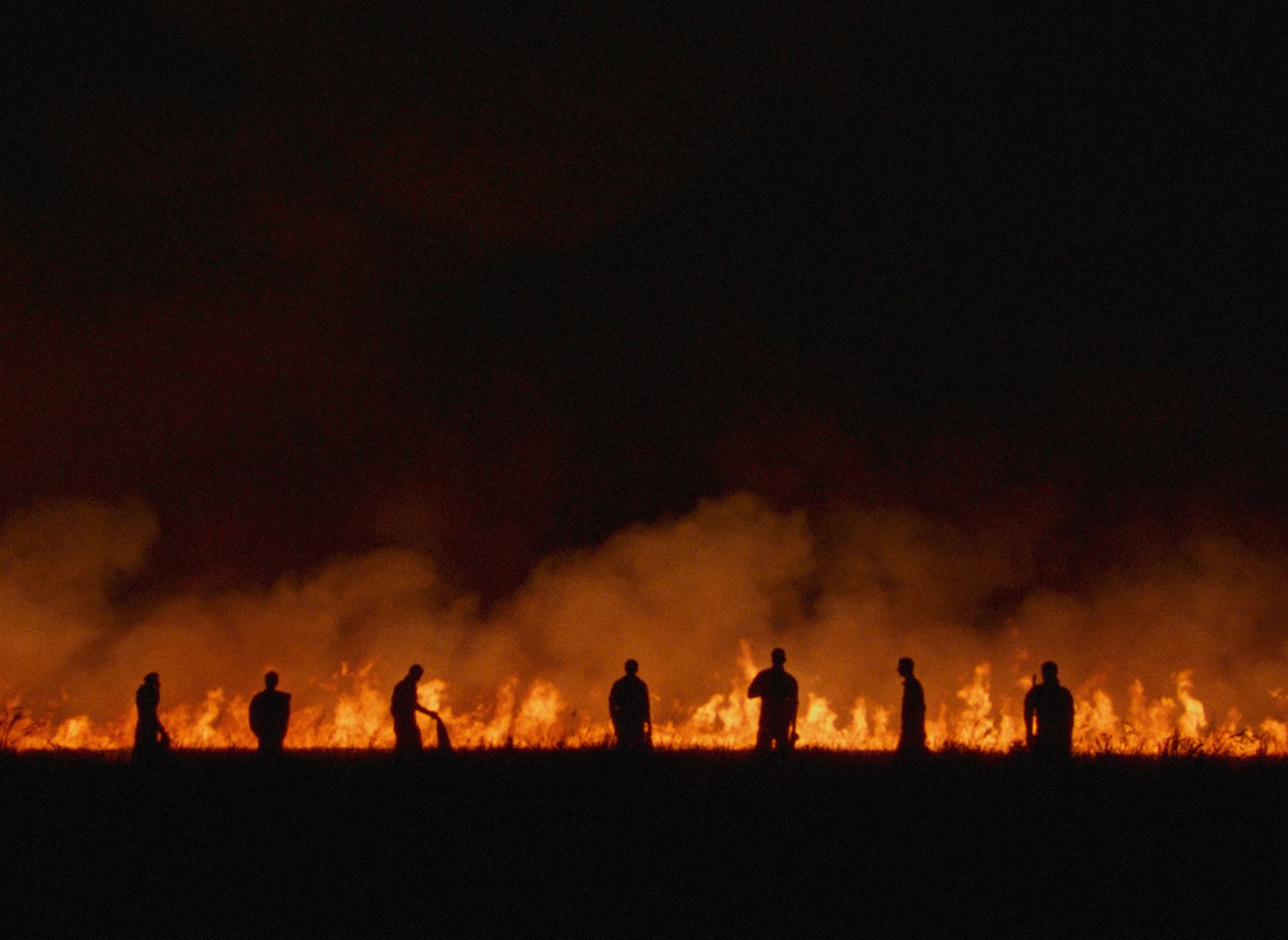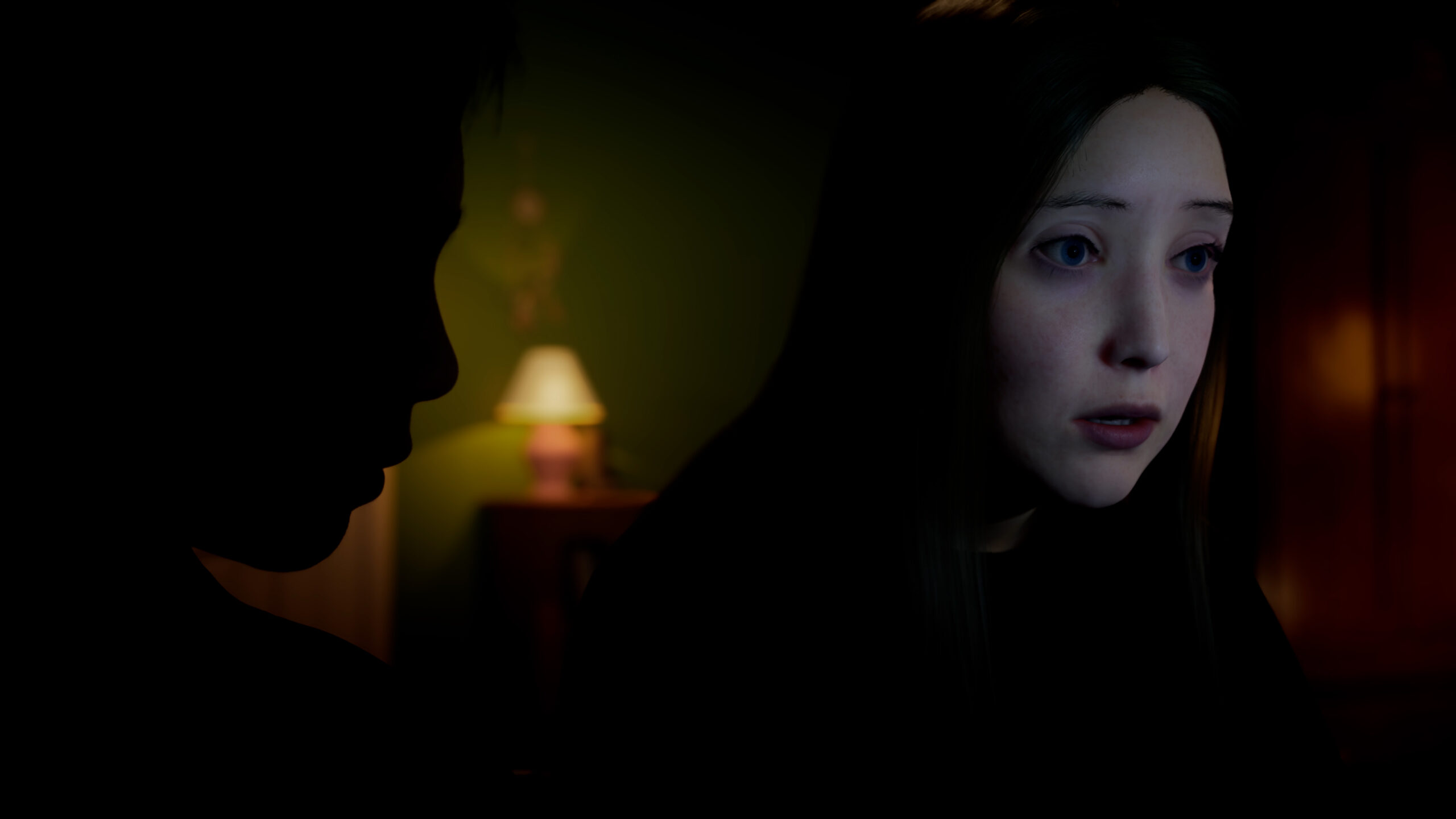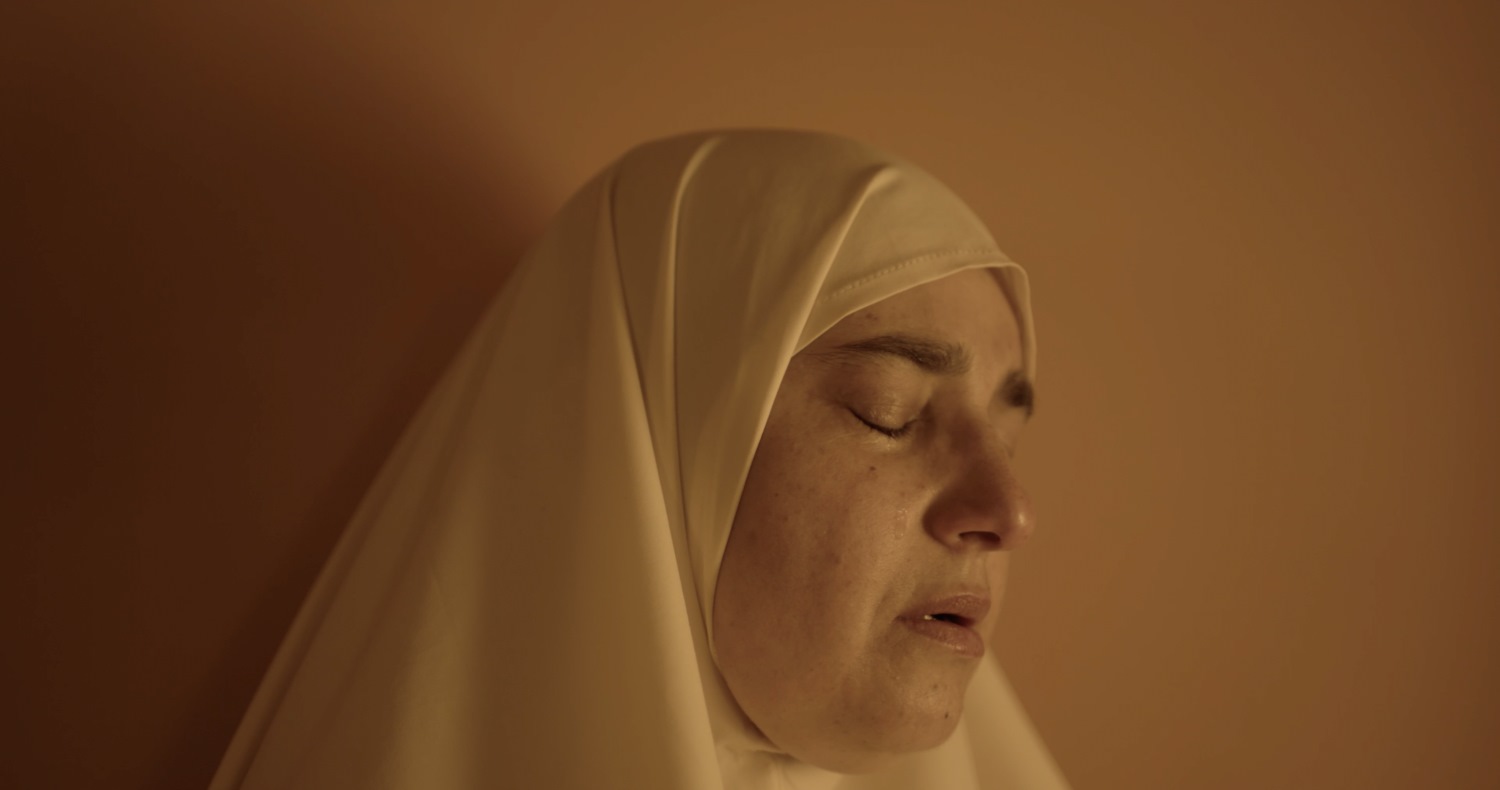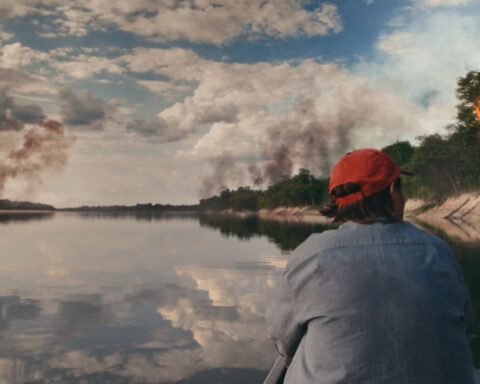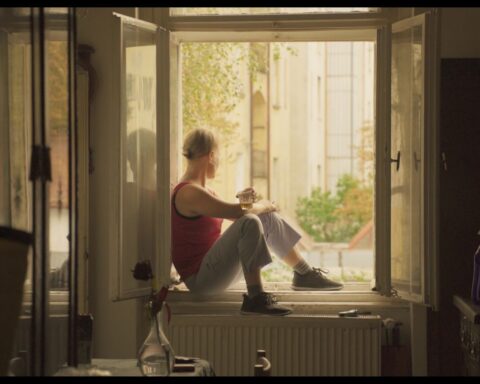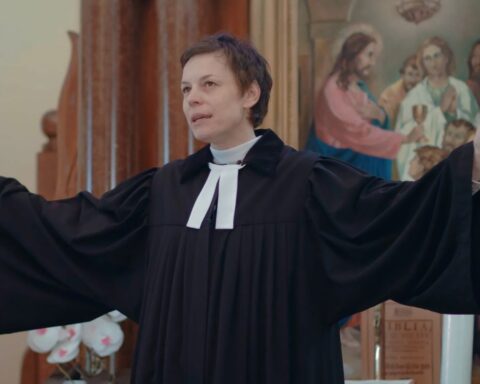When filmmaker Zaynê Akyol got the call from Telefilm Canada that her film Rojek was selected to represent Canada at the Oscars this year, she thought it was a joke. “Actually, I’m the only one who answered the call because all the other producers thought it was a prank,” says Akyol, speaking with POV by telephone. Rojek is only the second documentary to be Canada’s official submission in the Oscar race for Best International Feature following Eternal Spring’s breakthrough last year. The doc is a poetic and powerful study of the aftermath of war in Syrian Kurdistan. Akyol, who is Kurdish herself, sits down with members of the Islamic State to understand their motivation for committing violence against her people and the region. It’s a provocative film that challenges viewers to listen to the stories of terrorists and understand the roots of fundamentalism that fuel an ongoing cycle of violence. (Read the POV review of Rojek here.)
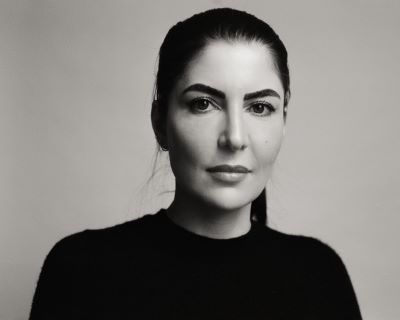
Akyol credits the selection committee for making such an audacious choice and says the opportunity is opening new doors for Rojek. For example, the film has its long-overdue U.S. premiere at DOC NYC on November 11 as part of the Winners’ Circle section that spotlights festival favourites and the Voices of Canada series. It’s still having a healthy run in Canada, with a recent encore at TIFF and festival screenings at Windsor and Whistler giving audiences more chances to discover Canada’s Oscar bid.
The film marks Akyol’s second feature as a director and offers a thematic companion to her debut Gulîstan, Land of Roses (2016), which observes women in the PKK, the Kurdistan Workers’ Party, as they fight against the Islamic State. For Akyol, who was born in Turkey and came to Canada at age four, the road to Rojek is a personal journey that predates Gulîstan. “When we immigrated to Montreal, we suddenly had this new freedom of saying who we are and not being scared—really fully who we are as the Kurdish community,” explains Akyol. “We were gathering in a Kurdish community centre where people were doing a lot of culture events, political speeches—everything that was related to the horror that was happening in our own countries.”
Akyol says it was then that she met Gulîstan, a strong woman who befriended her when she was getting her bearings in Canada and still too young to speak French. “Gulîstan was my roots in this new country,” says Akyol. “For two years, she babysat me when my parents were working. When I was around seven, she disappeared from my life suddenly without even saying goodbye. I learned that she joined the PKK and fought in the Kurdish mountains for years before dying in 2000.” The director says that learning of her friend’s death years later brought a new layer of grief to the sense of abandonment she felt as a child.
However, these sentiments fuel the palpable emotional complexity of Gulîstan and Rojek. Akyol says that after earning her Bachelor’s and Master’s degree studying cinema, she decided to make a film that respected Gulîstan’s life and explored the many questions she had about the world. “I wanted to honour her for all the love that she gave me,” notes Akyol. Production for Land of Roses began in 2014 with Akyol landing in Iraqi Kurdistan on a fateful day. “It was exactly the same day that the Islamic State attacked Kurdistan,” reflects Akyol. “I will always remember, throughout my life, it was the third of August 2014 because we were entering the country and everyone was leaving. Thousands and thousands of cars were going up north.”
In that moment, Akyol notes, she realised she couldn’t make the film she wanted about Gulîstan. “It was horrible. Death was everywhere,” she reflects.
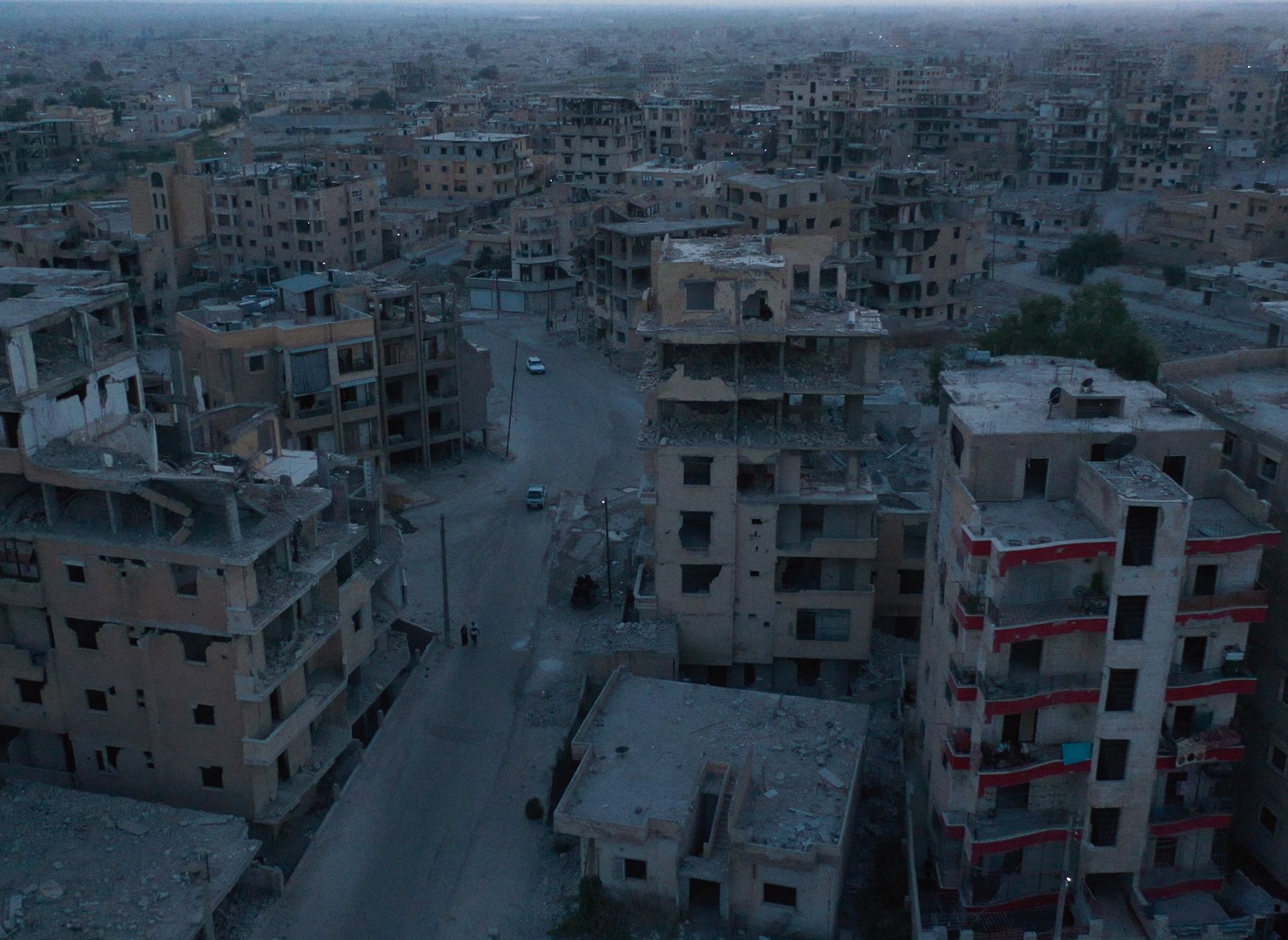
Instead, she shifted the focus to the women of the PKK fighting against the Islamic State. “In the Middle East, women are always portrayed as the victims, as the women who are crying for their sons, their daughters, their kids,” observes Akyol. “Suddenly, you have Kurdish feminist women who are fighting the enemy of the world. They are feminists, they are environmentalists, and they are for the freedom of the pluralism of culture, the pluralism of belief.”
Following those women through the years, though, Akyol says she experienced another layer of grief as more women fell to the violence of the Islamic State. She says that her next project aimed to focus on a contemporary Che Guevara figure among women soldiers, but the story shifted as the situation evolved. “When you write a script, especially in a war zone, it’s always changing,” says Akyol. “I had to think about what really interests me and matters to me. I had this scene with an interview with a member of the Islamic State in jail, but I really didn’t know if it was possible.”
The director says that one scene inspired her to reimagine the story from the other side, from which Rojek was born. Akyol admits that reframing the story opened up the complexity of the geopolitical situation in her search for more interviewees. “In the Middle East, especially in Syria, in the Kurdish part, they decentralised all the powers to make sure that people can make their own decision without having a federal government. It’s very fragmented and to get one permission, you have to talk with 50 people.”
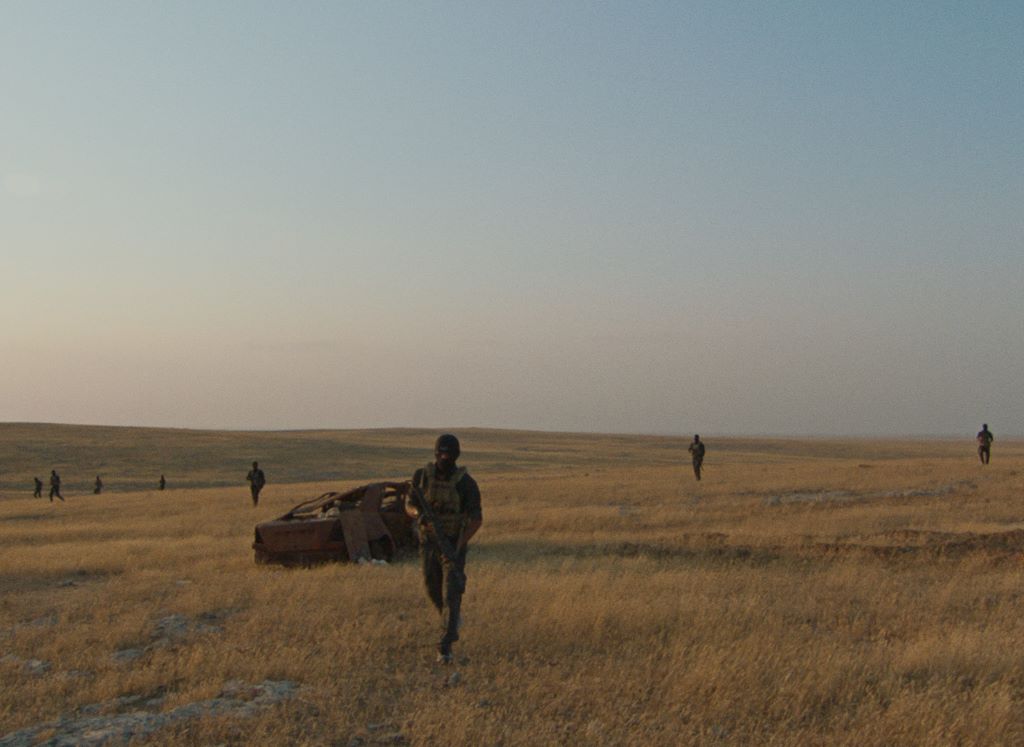
However, Rojek reflects the effort that went into gaining those permissions. The film features extraordinary access to three prisons holding former members of the Islamic State, as well as camps in which the jihadists’ family members are detained. Moreover, there’s a sense of extraordinary conviction to Rojek as Akyol’s camera meets former oppressors at eye level and asks why they fight.
Akyol says that in order to mentally prepare for the interviews, she immersed herself in ISIS propaganda videos. The director says that the process was difficult psychologically and that she didn’t ask her teammates to do the same research. “These are images that you cannot forget and erase,” she observes. But watching the extensive range of violent media was essential for understanding the characters in her film, and for asking the right questions to gain consent and guide her interviews.
“It was very a rigorous thing to do. I spoke with over a hundred people before and half of them obviously didn’t want to participate in the film because they know I’m a Kurdish director from Canada who did her first film about Kurdish women fighters, and now I’m trying to understand them,” explains Akyol. “The ones who did accept, I think they did it for different reasons. Some really wanted to show to the world that [losing the war] didn’t change their mind.”
The film, with its tightly framed interviews that show the speakers in intense close-ups, burrows into the psychology of terrorism. “As a Kurdish woman, I really wanted to understand who they are and why they’re doing those things because I saw so many horrible things on the ground,” explains Akyol. “Because I was there at the beginning of the war, it was my own quest to understand how they explain everything with religion. As Simone de Beauvoir, says ‘You aren’t born a woman, you become a woman.’ It’s the same thing as a murderer. You are not born a terrorist, you become a terrorist.”
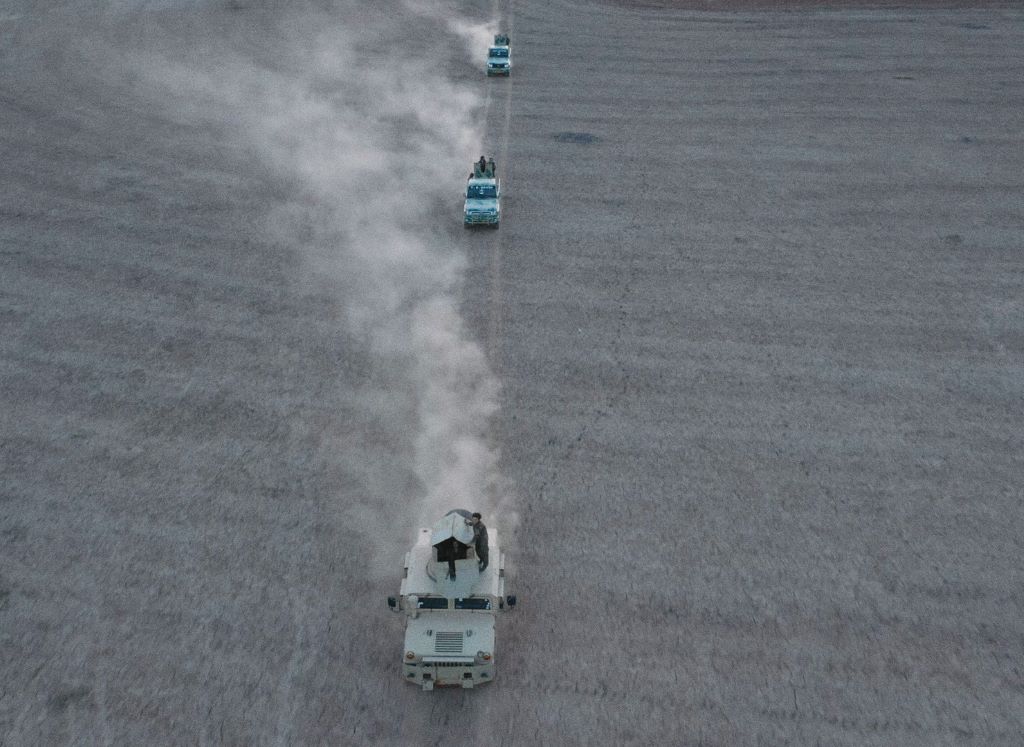
The line of inquiry that Akyol takes, however, is not one of pushing the terrorists to fess up to their crimes or to repent for their sins. There are no title cards naming the prisoners nor any intertitles signalling the charges against them. Instead, Rojek seeks to understand who they are as human beings, what their origin stories are, and how they came to follow a path they believe to be righteous.
Akyol’s voice is also present throughout the film and she begins her interviews by asking participants for their preferred language for conversation. Akyol says that she generally approached her interviewees with a set of questions, and then adapted according to their stories. “I’m asking question about their families, asking where they grew up,” says Akyol. “If they were telling me that they grew up in, say, Belgium, then I was trying to understand the differences between someone who grew up in Pakistan or if what it means if someone approached you or if you are a converter. If you convert yourself, then it’s different question. If they’re an emir in Syria, then the question are different then if they were a simple fighter or people who were the gun makers for the Islamic State.”
By listening to their stories, Akyol says one gets a deeper sense for how brainwashing works and why people hold onto deep beliefs in the face of defeat. Among the most powerful interviews is a woman who speaks French with Akyol and tells her story about her husband who fought in Bosnia. Akyol recalls listening to her story about how they went with the Taliban, befriended Osama Bin Laden, and enjoyed his protection in Pakistan. “Her husband then went to Saudi Arabia where he died with one of the kids,” notes Akyol. “She has been an Islamic fundamentalist for the last 34 years. It’s not new and the cycle keeps repeating. We have to think as a society, how can we stop that cycle?”
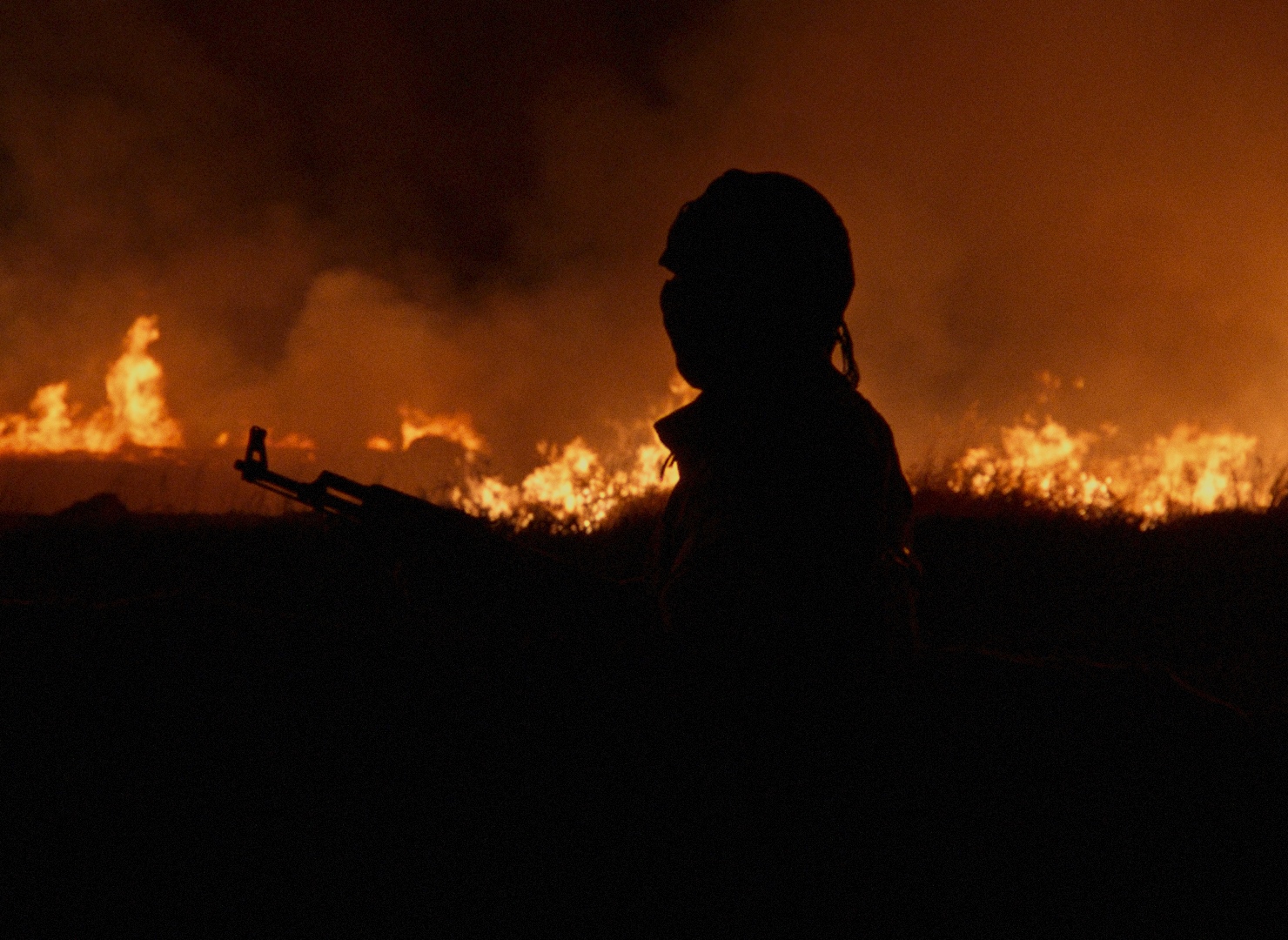 The director recognizes that the objective and empathetic approach may be jarring, but it arose naturally by having these difficult conversations with people who wanted to open up. “The sympathy happened because, as humans, we’re watching this film and trying to understand their thoughts,” says Akyol. She notes that she always tried to maintain distance with the interviewees because the process was emotionally exhausting, but that the narratives invite viewers to connect as she works to understand their stories. “We can recognise ourselves in the love they have for their families, their love for their wives, their kids, their parents,” adds Akyol.
The director recognizes that the objective and empathetic approach may be jarring, but it arose naturally by having these difficult conversations with people who wanted to open up. “The sympathy happened because, as humans, we’re watching this film and trying to understand their thoughts,” says Akyol. She notes that she always tried to maintain distance with the interviewees because the process was emotionally exhausting, but that the narratives invite viewers to connect as she works to understand their stories. “We can recognise ourselves in the love they have for their families, their love for their wives, their kids, their parents,” adds Akyol.
While Rojek invites empathy, it sharply contrasts the stories from the prison with the reality outside its walls. Akyol takes her camera to the fields of Syrian Kurdistan to observe the aftermath of war. “The cuts are very frank,” Akyol notes about the contrasts. “It was two separate worlds. I didn’t want to give Syria to the Islamic State.” Evocative shots show Kurdish soldiers marching in a row, protectively keeping watch over the land. Other images show villages trying to contain the spreading fires, a potent metaphor for the violence that scares the region.
If gaining access to the prisons was one matter, though, navigating the aftermath of war in the open is another. “Everything is very militarised and very strict because the sleeper cells are everywhere. The danger is everywhere,” says Akyol. However, she says that her interviews gave her frames of reference to gain access to locations, like an illegal oil refinery to understand how money flowed before and after the Islamic State was in control.
Akyol says that her team also learned from their experiences with Gulîstan to navigate the challenges of getting materials in and out of warzones. “We encrypted all the hard drives and we put fake footage in them,” explains Akyol. “When the border [police] were looking at the footage, they were seeing kids and other random footage, so they didn’t know that was the film. Whatever we came in with, we had to get out with the same material as well. They were checking everything: every cable, every battery, everything. We had an ARRI, we had a drone—was a no fly zone, but we found someone to unlock it. There are a lot of hackers on the ground.” The sweeping shots capture a landscape of resilience.
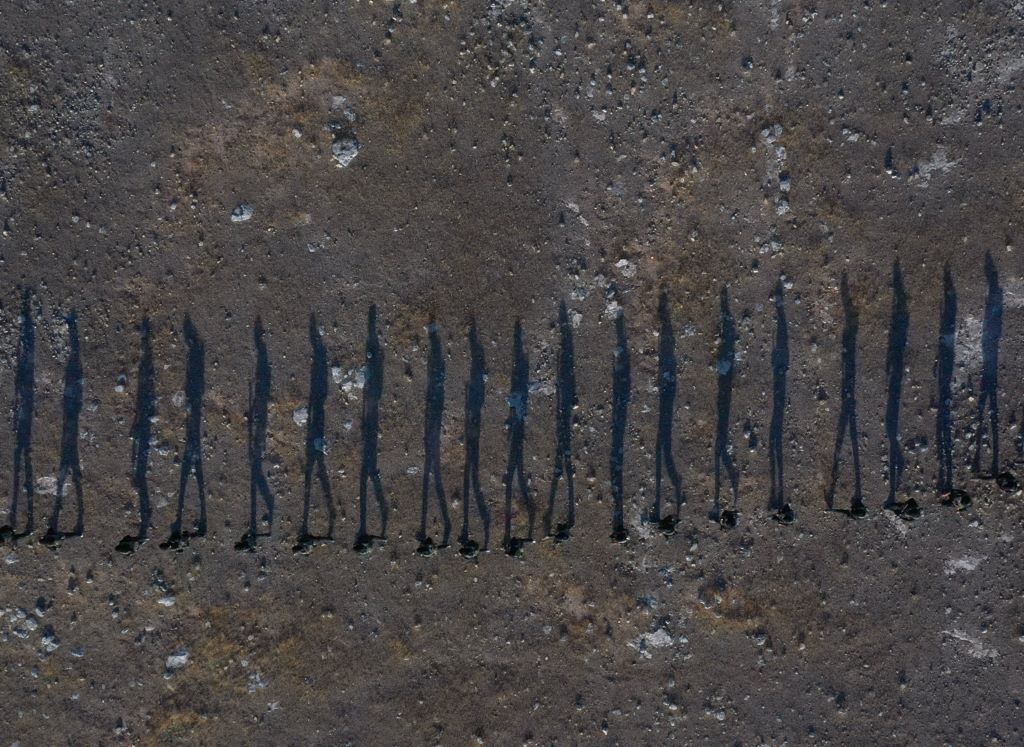
The film’s use of slow-motion, moreover, depicts villages in transition while capturing the state of unease one feels like navigating the landscape. “I always try to refer to what people were saying about life in the Islamic State and very trying to make it accurate to day to the moment that we were there.”
Akyol brings a strong eye for portraiture to the story, as she complements her films with photographic series that observe the people and places she encounters throughout her work. Photo exhibitions like Rojeke, One Day document the lives of Kurdish guerrillas from days that Akyol spent living with fighters. “It was my way to capture the history of the region. I started the first series of women fighters in Syria and Iraqi Kurdistan first, and when I did the second film, I wanted to do a second series about the women who were in Syria and who fought the Islamic State,” explains Akyol. “I’m always trying to immortalise those women and to make sure that they’re not forgotten because they are the one who fought.”
Immortalising the women who fight, and adding context to the story by gaining insights from the people who fought against them, Akyol’s work presents a nuanced portrait of a complicated situation with no easy answers. She hopes that the film inspires audiences to look more closely at the region, and even see parallels with what’s happening elsewhere in the Middle East. (References to the ever-evolving conflict in Israel and Palestine were frequent throughout our hour-long conversation.)
But the director says that Rojek offers a guide that audiences can take away: it’s all a process of asking questions to understand where both sides of a conflict are coming from and avoid repeating the cycle. “If we are conscious as a society of what decisions our leaders are making, we can be more present in the political sphere in the sense that we’re more aware of what is happening,” says Akyol. “At the borders, there are many people who have already escaped, so that means they’re going to reorganise and come back even stronger. For example, those kids who are in the camp are going to grow up to be the fundamentalists of tomorrow. It’s like a ticking bomb.”




